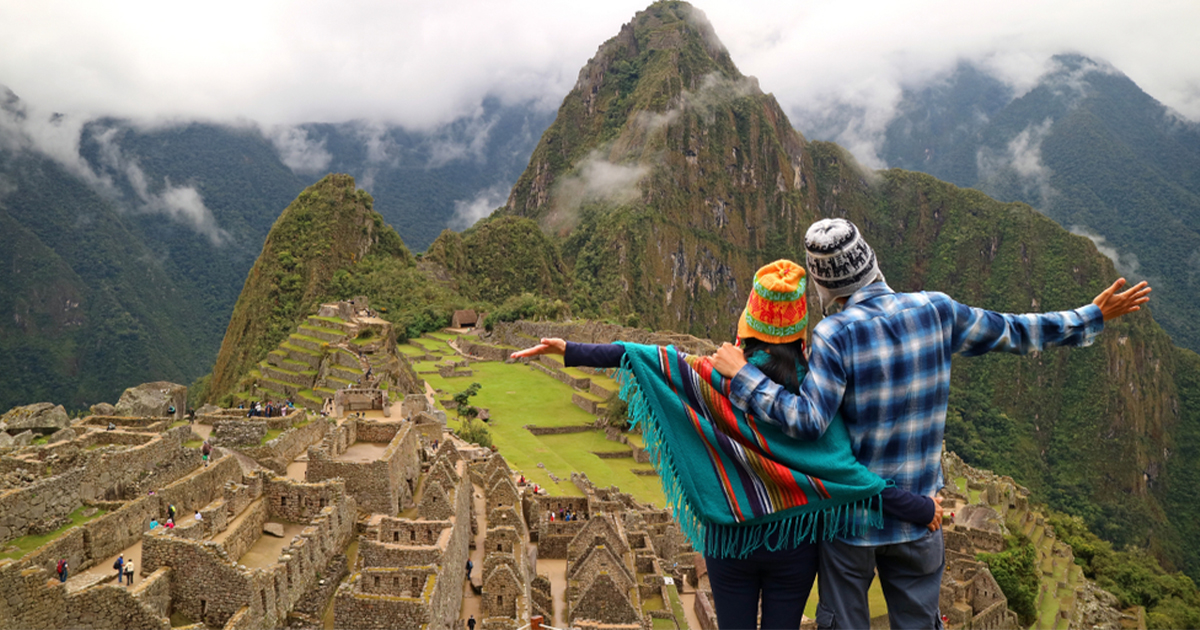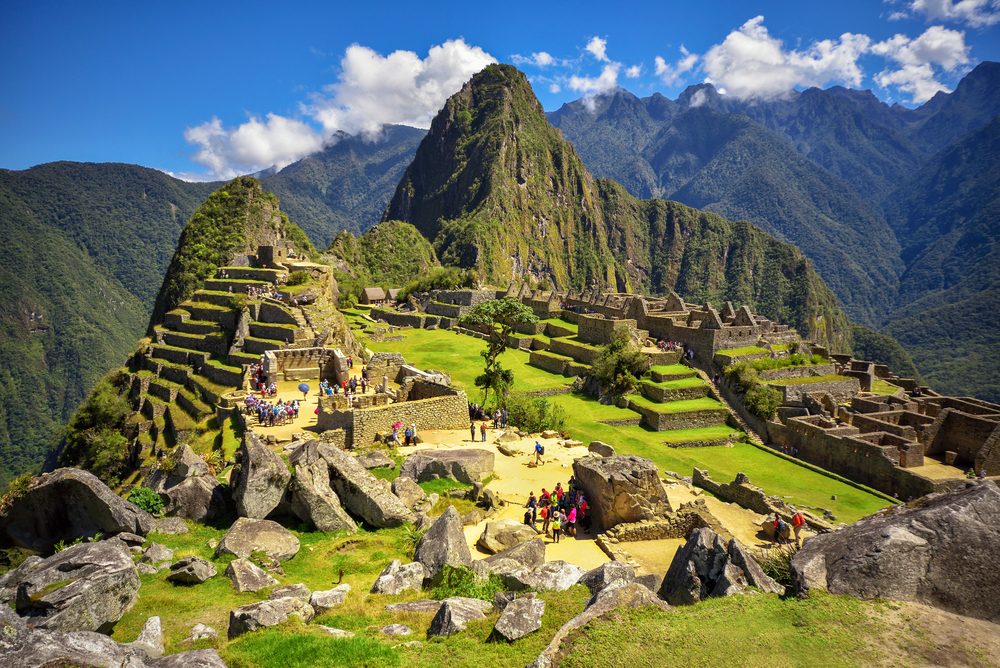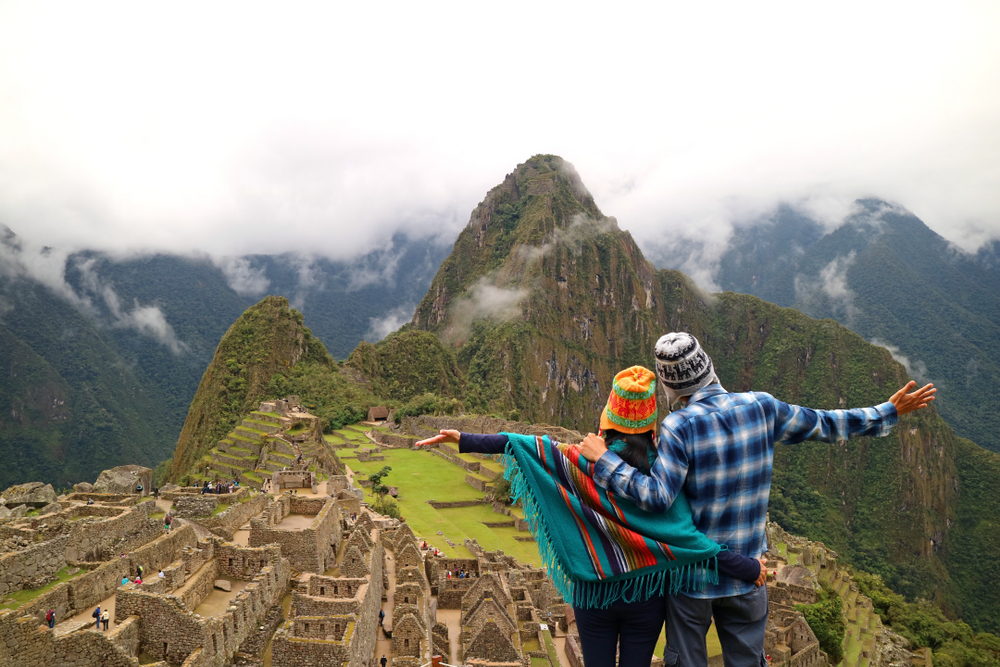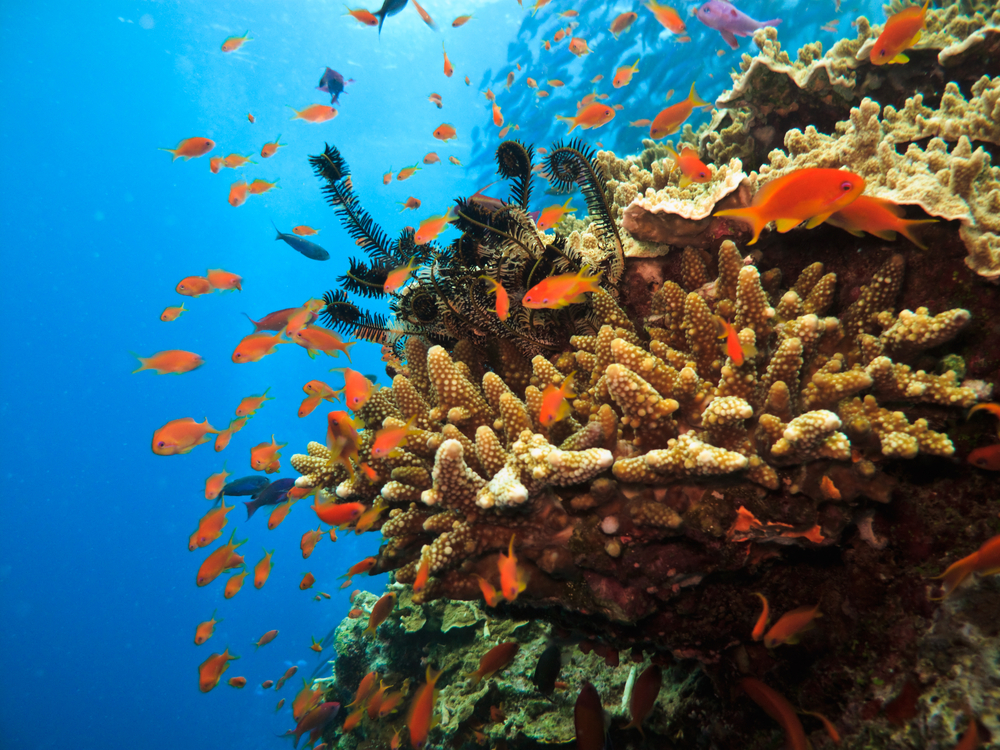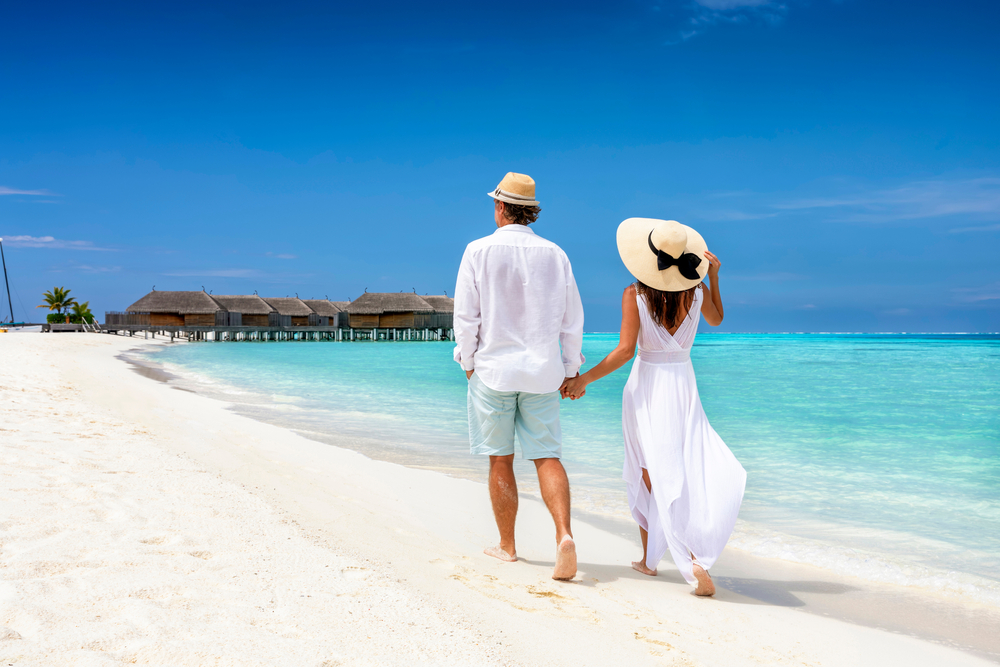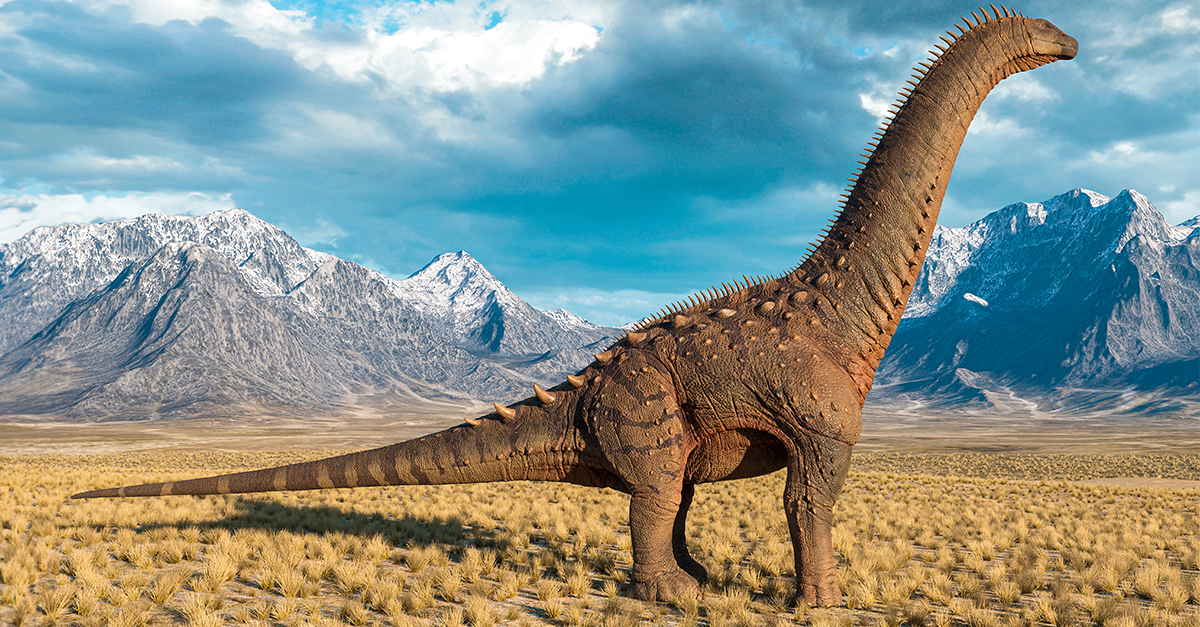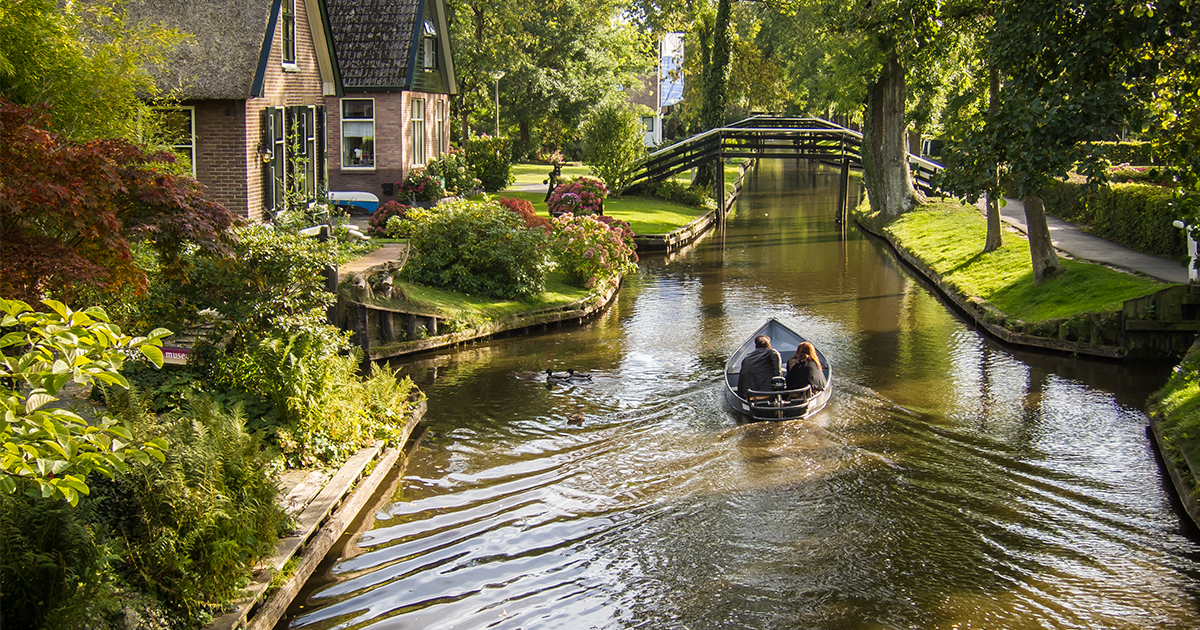They Won’t Last Forever
The world is full of amazing attractions but some of the most iconic will disappear sooner than we thought.
When it comes to the wonders with numbered days, these are 15 of the most at-risk.

1. The Galápagos Islands
If you’ve ever wanted to see the breathtaking beaches and diverse wildlife of the Galápagos Islands, now is the time to start planning that trip.
Rising ocean temperatures and overfishing have changed the landscape of islands, particularly the coral reefs which have begun to die. The native wildlife has also been threatened by changes to the environment.
 Diego Delso, CC BY-SA 4.0, Wikimedia Commons
Diego Delso, CC BY-SA 4.0, Wikimedia Commons
A Glimmer Of Hope
Luckily, there is hope for the islands—conservationists are trying several ways to restore the health of the islands, like re-introducing iguanas to disperse seeds throughout the area.
The Ecuadorian government is also controlling how many tourists can visit the islands at any one time.
 Seumas Christie-Johnston, Shutterstock
Seumas Christie-Johnston, Shutterstock
How To Visit
The best way to visit the islands is via a tour company. There are lots of options for small-group tours and cruises, which usually have no more than 30 participants.
This is the most sustainable way to experience the Galápagos and preserve this beautiful landscape while witnessing it for yourself.
2. The Great Wall Of China
This world-famous wall might stretch on for more than 13,000 miles, but about 90% of it has been devastated by erosion.
Natural weathering has chipped away at most of the Ming Dynasty section of the wall, and other places have seen damage from local graffiti artists and thieves who’ve stolen bricks from the structure.
When To Visit
If you visit the Great Wall of China, it’s important to show this incredible monument the care and respect it deserves.
September to November and late March to May are the best times to go, since the weather will be nice, and the landscape comes alive with colorful foliage.
3. The Amazon Rainforest
The Amazon Rainforest is often called the “lungs of the world”, but this tropical paradise is slowly dying.
Much of the forest has been cleared by loggers and to make way for cattle and soy farms.
 James Martins, CC BY 3.0, Wikimedia Commons
James Martins, CC BY 3.0, Wikimedia Commons
Conservation Matters
In addition to human activity, climate change is a threat to the forest, resulting in catastrophic fires that cause irreparable damage.
If sustainable tourism and conservation efforts aren’t taken seriously, the world could lose its largest rainforest within the next century.
How To See It
Small river cruises are a great way to see the Amazon without leaving too much of a carbon footprint.
In addition to cruising on the water with beautiful pink dolphins, guides can help you safely venture deeper into the forest to see some of the region’s other incredible wildlife.
4. The Everglades
Located on the southern tip of Florida, this wetland oasis is home to the western hemisphere’s largest mangrove forest.
It’s also where you’ll find an incredible variety of birds, reptiles, and endangered species like the manatee and Florida panther.
Conservation Is Critical
Sadly, more than half of the original Everglades have been destroyed by urban development and air pollution from farms and power plants. UNESCO has listed it as a World Heritage in Danger since 2010.
How To See It
The resorts in Fort Lauderdale are only an hour away from the Everglades National Park and offer a chance to see some of the state’s beautiful beaches as well as the famous wetlands.
An airboat tour through the Everglades is the best way to see the alligators and other wildlife that live there.
5. Machu Picchu
Sitting high atop Peru’s Andes Mountains, Machu Picchu was once a great Incan city. It was abandoned in the 16th century and lay empty until explorers discovered it in 1911.
Now, the “Lost City” is a world wonder—but its days may be numbered.
 Diego Delso, CC BY-SA 4.0, Wikimedia Commons
Diego Delso, CC BY-SA 4.0, Wikimedia Commons
Natural Decay
A destructive combination of harsh topography and extreme weather conditions is only amplified by the site’s location 8,000 feet above sea level.
The ancient city is prone to erosion from the elements and devastation from natural disasters.
When To See It
If you want to check Machu Picchu off your travel bucket list, go during the dry season, from April to October.
If you want to avoid the crowds, try to avoid peak season in July and August.
6. Venice, Italy
Venice is renowned for its romantic gondolas and picturesque canals, but rising sea levels and the movement of tectonic plates constantly threaten to submerge all that beauty.
The city is sinking about 2 millimeters each year—that may not seem like much, but by 2100, all of Venice could be underwater.
When To Visit
For the best weather for your gondola ride, head over to Venice sometime between June and September.
Many of the hotels have offer incredible views of the canals and cityscape, so you can take in the beauty every day of your trip.
7. The Great Barrier Reef
The Great Barrier Reef is the world’s largest and most awe-inspiring coral reef—and humans have caused its destruction.
Pollution and climate change have made the water more acidic and facilitated outbreaks of venomous crown-of-thorns starfish, who eat coral.
Hot Water
Increases in water temperature have also damaged the reef, leading to bleaching that turns the coral white.
Since the 1980s, we’ve lost more than half of the reef and experts say the rest could be gone by 2050.
Swim Responsibly
Luckily, the Great Barrier Reef still offers unparalleled deep-sea sights, and you can find more than 1,500 species of fish within this 1,429-mile stretch of shoal.
Tourism to the reef is carefully controlled, so if you go snorkeling or diving there, you can do so knowing you’re visiting responsibly.
8. Antarctica
This breathtaking frozen continent is where you’ll find penguins, orcas, leopard seals, and of course majestic ice caps. Sadly, the world’s ice caps are melting, and we could lose nearly 25% by 2100.
Most of that melting is happening in Antarctica, so if you want to see it as it is, head over there soon.
 Vincent van Zeijst, CC BY-SA 3.0 , Wikimedia Commons
Vincent van Zeijst, CC BY-SA 3.0 , Wikimedia Commons
When To Visit
Antarctica is known for being an icy wonderland, but from December to February, the ice melts. That’s when you can hop on a cruise ship to tour this breathtaking white wilderness.
9. Ol Pejeta Conservancy, Kenya
This incredible wildlife conservancy is home to one of the world’s rarest creatures: the northern white rhino.
There are only two northern white rhinos left on the planet and there’s still some time to see them before the inevitable.
Fatu and Najin
The two rhinos are named Fatu and Najin and since they’re both female, there’s little hope for the survival of the species.
While tourists can visit the rhinos in their 700-acre enclosure within the conservancy, they are well protected by the park rangers and their anti-poaching dogs.
 Ray in Manila, CC BY 2.0, Wikimedia Commons
Ray in Manila, CC BY 2.0, Wikimedia Commons
How To Visit
The best way to experience the conservancy is by camping out in luxury tents.
Several ecolodges, like Kicheche Laikipia, offer the chance to camp out at the park, and make it easy to book a safari tour or a trip to join the rangers in their training.
10. The Dead Sea
Travelers have been drawn to the shores of the Dead Sea for more than 2,000 years. Nestled between Jordan and Israel, this salt lake sits at the lowest point on earth, about 1,400 feet below sea level.
 Eduard Marmet, CC BY-SA 2.0, Wikimedia Commons
Eduard Marmet, CC BY-SA 2.0, Wikimedia Commons
Floating Away
Because of all the salt in the water, people don’t swim in the Dead Sea—they float.
As well as making for a fun time, the water has a lot of magnesium in it, which is good for improving circulation and soothing skin irritations.
Shrinking
Scientists think that because of all the salt, the Ded Sea will never truly disappear. Unfortunately, that doesn’t mean that it will always be this fun to visit.
Since 1960, high temperatures have caused more than a third of the lake’s surface to evaporate. It continues to shrink more than 3 feet each year and could be just a puddle of sludge by 2050.
How To See It
The weather near the Dead Sea is pretty nice year-round, but spring (March to May) and fall (October and November) are the best times to go since it’s not too hot and a bit less crowded.
If you go in the lake, follow the same safety regulations as any other body of water—and don’t stay in there for more than 15 minutes, unless you like irritated skin.
 israeltourism, CC BY 2.0, Wikimedia Commons
israeltourism, CC BY 2.0, Wikimedia Commons
11. Vienna, Austria
With famous museums, world-class coffeehouses, and lots of rococo and baroque architecture, it’s easy to see why people continue to be enchanted by Vienna.
But in 2017, construction projects led UNESCO to add the city to their list of World Heritage in Danger.
In With The New
A construction boom saw the creation of big, modern buildings and high-rises, which will change the city’s skyline.
The new buildings also threaten the city’s baroque palaces and gardens and Vienna’ most beautiful street: The Ringstrasse.
When To Visit Vienna
Luckily, there has been strong opposition to the modernization of the city, and UNESCO may reevaluate its endangered status.
If you’re hoping to take in Vienna's charms, plan your trip for spring or fall, when the crowds are mild like the weather.
 Alexander Osenniy, Shutterstock
Alexander Osenniy, Shutterstock
12. Patagonia
Patagonia is a haven for adventure lovers, with majestic glaciers, stunning ice fields, and 10 million acres of national parks.
However, like Antarctica, global warming is changing this landscape.
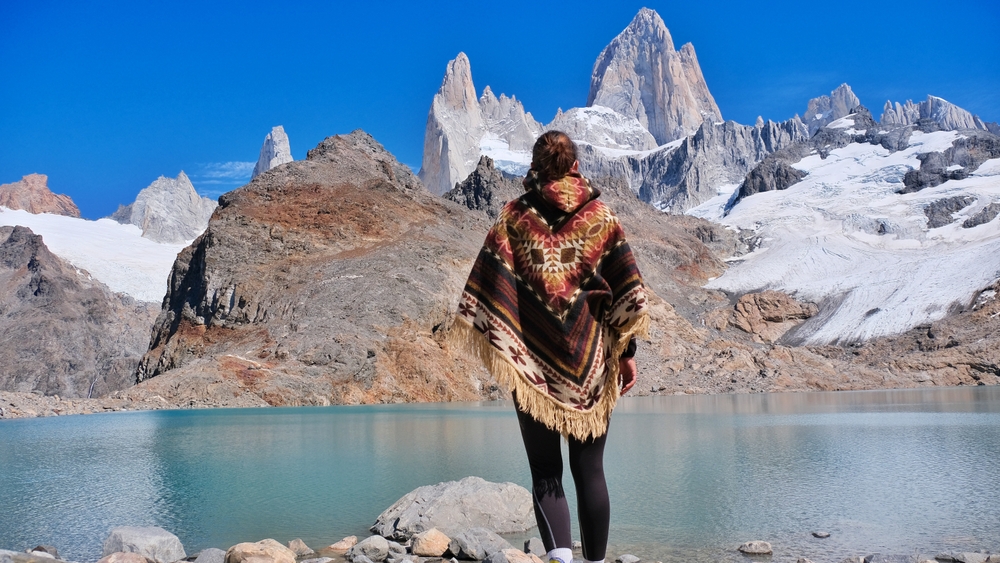 Thousand Travel Tales, Shutterstock
Thousand Travel Tales, Shutterstock
Melting Fast
In 2015, scientists found that Patagonia’s ice fields were melting at an alarming rate. The glaciers were also receding, up to 6 miles each year.
Scientists still aren’t sure how to protect the land and people living in this region or stem the glacial melt.
When To Visit
October to February is the best time to visit Patagonia, since those are the spring and summer months in the southern hemisphere.
To see famous peaks like the Grey and Serrano glaciers take a kayak ride along Grey Lake or hike through Bernardo O’Higgins National Park.
13. The Maldives
The Maldives are the world's lowest-lying country, which also makes them the most at-risk for damage from rising sea levels.
Climate change and pollution have weakened the coral reefs around the islands, and if they aren’t strengthened, scientists estimate that 80% of the region could be submerged by 2050.
How To Visit
The clear waters of The Maldives are perfect for snorkeling, diving, and surfing.
There are also lots of ecolodges and luxurious resorts to kick back and relax at, with some of the best located in Baa Atoll, a UNESCO World Biosphere Reserve.
14. Glacier National Park, Montana
Millions of people visit Glacier National Park each year, making it one of the most popular national parks in America.
The landscape is breathtaking, but most people are probably coming to see the glaciers while they still can.
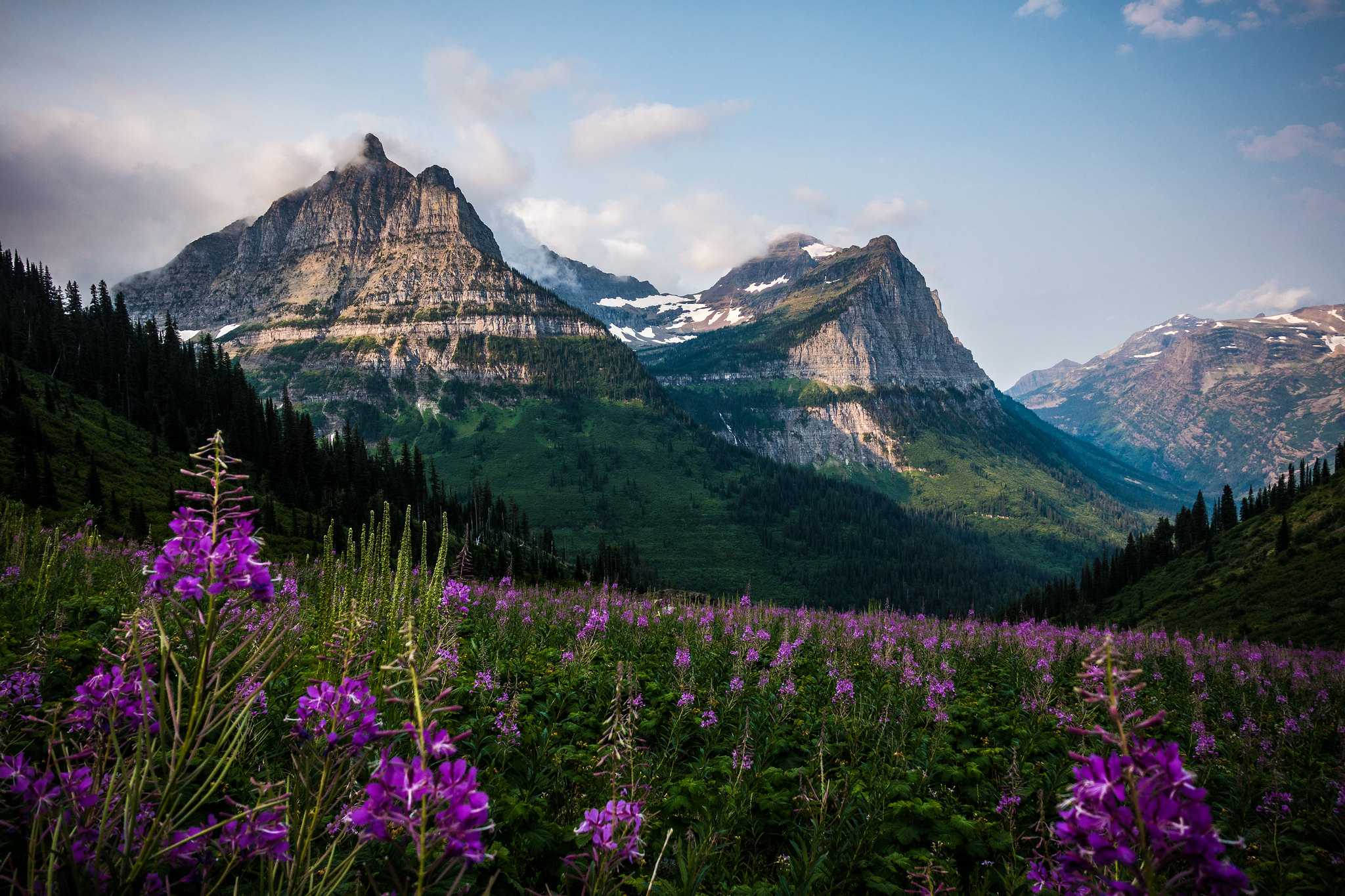 U.S. Department of the Interior, Flickr
U.S. Department of the Interior, Flickr
See Them While You Can
The park is home to 26 glaciers and over the past 50 years, they’ve all experienced significant shrinkage due to climate change.
Some have shrunk by almost 80% and scientists predict that all the ice in the park will have melted by the end of the century.
 Greg Willis, CC BY-SA 2.0, Wikimedia Commons
Greg Willis, CC BY-SA 2.0, Wikimedia Commons
When To Visit
In mid to late June, the Going-to-the-Sun Road opens, offering scenic views for all who drive it.
July and August are the busiest times of the year, so try going in early fall—that’s also when it’s most colorful.
15. Chamonix, France
The snowy slopes of the French Alps are a world-famous retreat for skiers, but many people are also drawn to Mer de Glace (meaning “Sea of Ice”) glacier.
It’s the largest glacier in France and offers visitors a rare chance to descend into the heart of the frozen mountain range.
 Ximonic, CC BY-SA 3.0, Wikimedia Commons
Ximonic, CC BY-SA 3.0, Wikimedia Commons
Thin Ice
Like the other icy wonderlands on this list, the glacial beauty of Chamonix is threatened by climate change and global warming.
The glaciers is steadily melting, losing up to 4 inches of thickness every day in the Summer.
When To Visit Chamonix
January and February are the best months to visit if you’re looking to go skiing and avoid the crowds. The summer months are better if you’re looking to go hiking or enjoy warmer weather.

